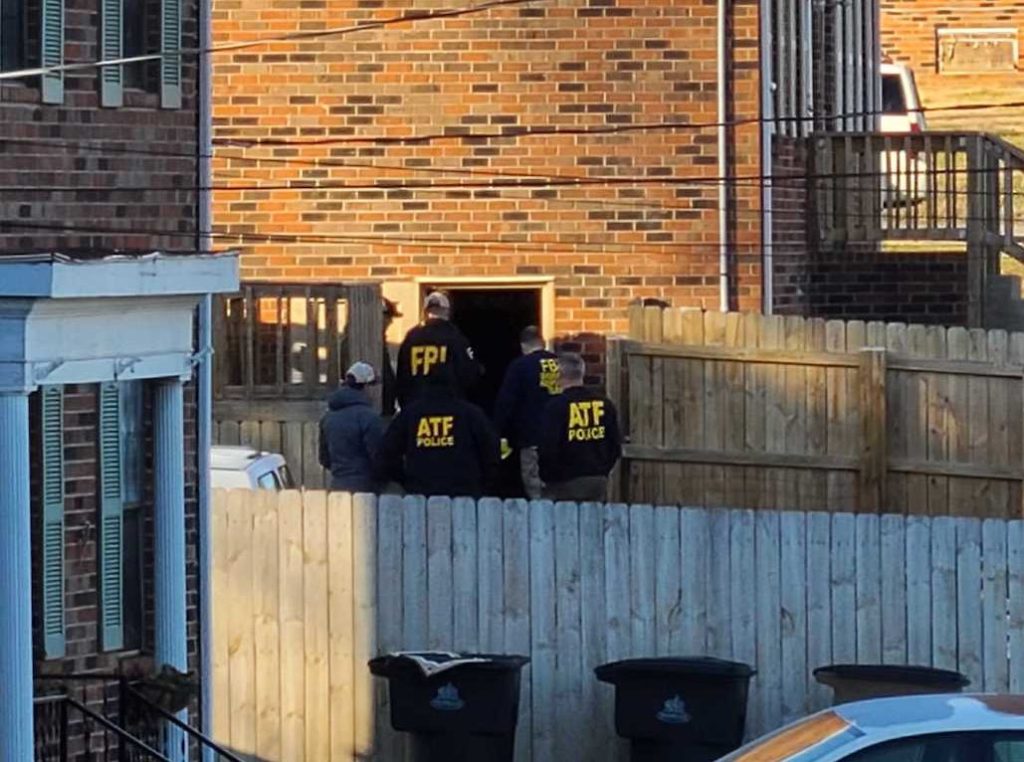
Officials have shied away from calling the Christmas Day bombing an act of domestic terrorism while they continue to investigate potential motives. And many people are asking: Why?
It’s partially a question of semantics. But it also speaks to common stereotypes about who qualifies as a terrorist.
On Sunday, FBI field director Doug Korneski told reporters that agents don’t have enough evidence to call Anthony Warner a domestic terrorist. The FBI defines domestic terrorism as a violent, criminal act that’s committed to further someone’s beliefs about American issues. And Korneski says officials don’t know enough about Warner’s beliefs yet to meet that criteria.
“When we assess an event for a domestic terrorism nexus, it has to be tied to an ideology,” he said, shortly after authorities confirmed that they had matched DNA from the crime scene to DNA from several of Warner’s belongings.
But outside of the legal definition, “domestic terrorism” is a loaded term, and it has sparked debates for years, from mass shootings to the attack on protesters in Charlottesville.
“That definition matters for federal law enforcement. It doesn’t matter for all things and all people,” says Alex Little, a Nashville attorney who used to lead a federal anti-terrorism task force. “As we colloquially think about these terms, these ideas, this is absolutely an act of domestic terrorism, just by the act itself and the fact that it took place in Nashville by a homegrown individual.”
And Little says it shouldn’t make a difference if Warner sent warnings in order to prevent mass casualties. He says terrorist groups like the Irish Republican Army also took steps to save lives before they committed acts of violence.
“You don’t need to kind of instill fear through the threat of death, necessarily,” Little says. “But it’s certainly scary if you were to call in a bomb threat, and, sure enough, there is a bomb.”
Council member Zulfat Suara says she can’t understand how a massive explosion that destroyed a large swatch of downtown and disrupted 911 service for days could be anything other than terrorism. She says there seems to be a double standard when the suicide bomber is a white man.
“If it was a Muslim or Black man or an immigrant, I don’t think people would be bending backward trying to find ways to not call it what I think it is,” Suara says.
When a Muslim man killed five people in a mass shooting in Chattanooga in 2015, many officials were quick to call it domestic terrorism, even before they determined the motive. (The U.S. Attorney working on that case quickly walked back his use of that term, though many politicians did not.)
As a Muslim, Suara has seen her entire religion get labeled time and again after similar tragedies. Each time she hears about another incident, Suara says she prays that it wasn’t a Muslim, because she fears the potential backlash.
“When something like that happens, you start getting emails. You start getting posts on Facebook. You start getting attacked as a Muslim. People start getting being harassed on the street. You know, kids get called names.” she says. “That happens.”
Suara hopes people will think more critically about how they use the word terrorism after the bombing. And that they’ll be consistent, no matter who the perpetrator is.
“As government, as media, we have to lead with example,” she says. “And we have to do better.”
Editor’s note: WPLN News is using the federal definition of the term “domestic terrorism,” which would require a motive before it could be applied in Anthony Warner’s case. As in the case of all crime suspects, our newsroom exercises caution when applying any legal labels and prioritizes providing the necessary context to understand those terms.
Samantha Max is a Report for America corps member.

